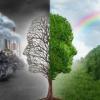News
Displaying Results 101 - 119 of 119
40 percent of the world’s population lives in one of the 275 transboundary river basins. Transboundary waters account for 60 percent of the world’s freshwater flows. Cooperation for the management of shared water resources is therefore crucial for economic development, peace and environmental…
From the very beginning of the Covid-19 crisis, it has been clear that there is a gender dimension to its impacts. This week the Bureau of the Conference of European Statisticians will ask UNECE to lead the way in guiding countries to gather data on the ways that gender mediates…
The COVID-19 health crisis has caused wide-ranging socio-economic disruption worldwide. This has exposed and aggravated existing social imbalances. The pandemic has called for unprecedented measures to protect those so close to our heart: our parents, grandparents, the elderly and vulnerable.…
UNECE statistical modernization programme supports countries’ response to data collection challenges
A virtual UNECE workshop concludes today in which experts on surveys, censuses and alternative data collection methods have revealed their brand-new learning about the best ways to…
Supporting countries in the implementation of the Sustainable Development Goals (SDGs) is UNECE’s key priority. The SDGs are embedded in all UNECE workstreams, including trade. Sustainable trade reforms can promote inclusive growth, job creation and poverty reduction, thus contributing to the…
With the consequences of COVID-19 still unfolding, one area of major disruption has been to global food systems, resulting in significant increases in food loss and waste.
Today, the first ever International Day of Awareness of Food Loss and Waste, is a wake-up call. We must access and make…
While COVID-19-related disruptions may have impacted people’s mobility and slowed cross-border movements of people and goods this year, pollution knows no travel restrictions. Air pollutants, travelling through our atmosphere, can harm people and the environment even thousands of kilometres…
In early March this year, the UN Secretary-General called for countries to step up their efforts and turn deforestation around in order to make 2020 a ‘super year’ for nature.
This call arrived following the release of an alarming report highlighting the unprecedented speed at which ecosystems…
ICTs are a powerful tool to alleviate barriers faced by women entrepreneurs. The impact of the COVID-19 and the restrictions imposed on doing business worldwide since the beginning of 2020 have made the need to use ICTs imperative for the survival of small businesses. The digital platforms provide…
The COVID-19 pandemic and the lockdown measures implemented by most of the governments in the UNECE region have fundamentally changed the way we work, study, communicate, define priorities and function in our everyday life. Governments and international organisations have focused on immediate…
Most Governments have responded to the coronavirus disease (COVID-19) pandemic by declaring a state of emergency and by adopting numerous measures to combat the spread of the virus, which have often included restrictions on the freedoms of assembly and movement. This has altered the way in which…
Like so much else in our societies that we had taken for granted before the COVID-19 crisis, the daily commute has for many been temporarily set aside in a makeshift home office.
After weeks of lockdown and confinement, the priority now is to relaunch the economy, while maintaining the necessary…
By UNECE Executive Secretary Olga Algayerova and UN Women Regional Director for Europe and Central Asia Alia El-Yassir
Since the global outbreak of COVID-19, essential workers have been risking their lives in order to protect ours. No expense should be spared to ensure the availability and…
We are living in one of those moments which define history. As it is always the case in such moments, the promise and peril of international cooperation, solidarity and multilateralism inevitably come under the spotlight, as evidenced by the overwhelming media attention given to governments’…
In 2014, Austria and France launched The Partnership on Cycling Promotion under the Transport, Health and Environment Pan-European Programme (THE PEP), a programme jointly serviced by UNECE (bringing together its work on environment and sustainable transport) and the WHO Regional Office for Europe…
The diesel scandal in Europe has made us aware of the potential trade-offs between different fields of policy. While trying to reduce greenhouse gas emissions, policies to subsidize diesel cars were made without taking into account that diesel emissions have serious negative impacts on air quality…
Marking two hundred years since the invention of the Draisine, an ancestor of the bicycle, in Mannheim, Germany, the city will host two events this month on the theme of active mobility: the International Cycling Conference and a Transport, Health and Environment Pan-European Programme (THE PEP)…
While others debate the merits of green economy, the Transport, Health and Environment Pan-European Programme (THE PEP) demonstrated once again its hands-on approach by hosting a green economy discussion that focused not on whether to implement green economy, but how to do it.
The…
Policies that support cycling not only contribute to the fight against air pollution and greenhouse gases and boost health, but can also go a long way in creating jobs as part of the transition to a Green Economy, participants heard at a side event in Batumi.
An estimated 435,000…



